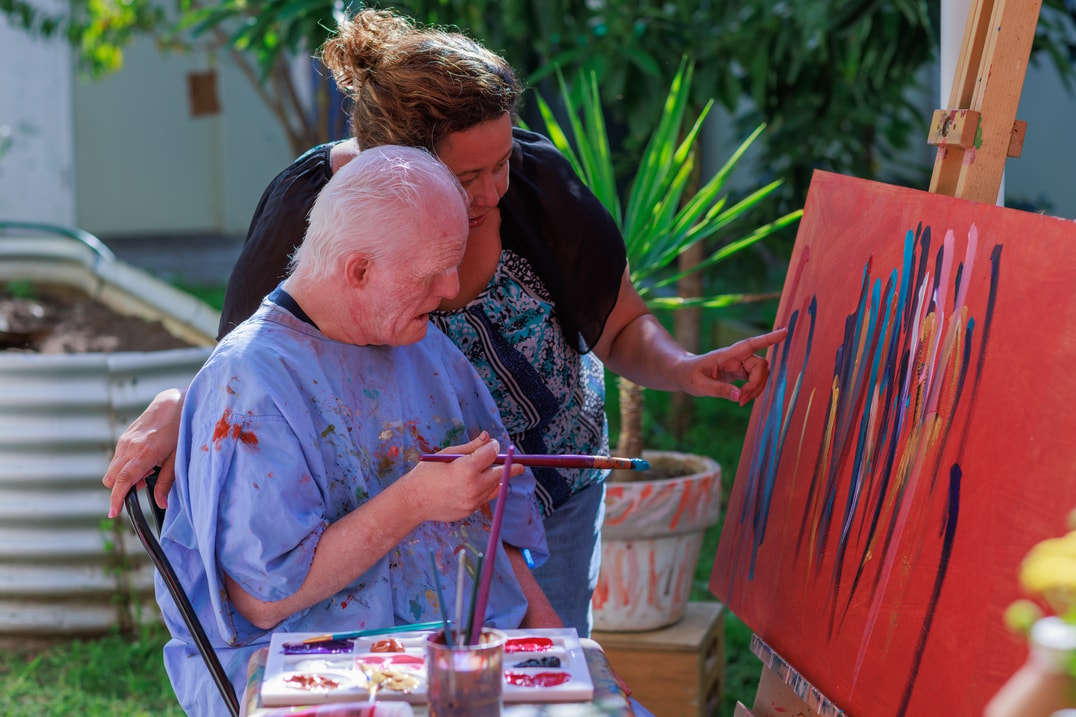Occupational therapy, often called OT, is a type of health service that helps people take part in everyday activities. This can include tasks at home, work, school, or in the community. Occupational therapists work with individuals to improve skills, adapt environments, and make daily life easier and more independent.
OT is important because it helps people overcome challenges caused by injury, illness, disability, or ageing. It focuses on what a person wants and needs to do every day, supporting independence, confidence, and overall quality of life.
This blog will highlight the key benefits of occupational therapy. It will explain how OT can help people perform daily activities more easily, maintain independence, and participate fully in their communities.
Choose Scope Australia if you are looking for professional occupational therapy services to support independence and daily living.
The Benefits Of Occupational Therapy
1. Improving Daily Living Skills
Occupational therapy plays a key role in helping individuals manage daily living tasks with greater ease and independence. This includes essential self-care activities such as dressing, bathing, grooming, cooking, and cleaning. Occupational therapists assess a person’s abilities and challenges and then provide practical strategies, techniques, and assistive tools to complete these tasks safely and efficiently. For example, they may suggest clothing with easier fastenings, shower chairs, or adapted kitchen utensils that make everyday activities simpler.
Therapists also focus on adapting routines and home environments to support independence. Small changes, such as reorganising cupboards, adjusting countertop heights, or introducing mobility aids, can make a significant difference in reducing physical strain and improving safety. They may also help individuals develop structured daily schedules that balance rest, work, and personal care, making routines more manageable.
By improving daily living skills through both practical strategies and environmental adaptations, occupational therapy enables individuals to maintain autonomy, reduce reliance on others, and increase confidence in performing everyday activities. This support not only enhances safety and efficiency but also contributes to overall wellbeing and quality of life.
2. Enhancing Physical Health
Occupational therapy helps people recover and maintain physical health after an injury, surgery, or illness. Therapists work with individuals to regain movement, strength, and coordination so they can perform daily activities more easily.
They provide tailored exercises and activities designed to improve mobility, balance, and overall physical fitness. This may include stretching routines, strengthening exercises, or practising functional tasks such as reaching, lifting, or walking. By focusing on physical health, occupational therapy supports independence, reduces the risk of further injury, and helps individuals stay active and confident in their daily lives.
3. Supporting Mental Health
Occupational therapy can help people manage mental health challenges such as stress, anxiety, or depression. Therapists use practical strategies and activities to support emotional well-being and make daily life more manageable.
OT interventions may include relaxation techniques, mindfulness exercises, time management strategies, or structured routines to reduce stress and improve focus. By building coping skills and confidence, occupational therapy helps individuals feel more in control of their lives, stay motivated, and maintain a positive outlook. This support promotes overall mental health and improves the ability to participate fully in daily activities.
4. Boosting Cognitive Abilities
Occupational therapy can help improve cognitive skills such as memory, problem-solving, attention, and decision-making. Therapists design activities and exercises that challenge the brain and encourage thinking skills needed for daily life.
This support is particularly beneficial for individuals with developmental or neurological conditions, brain injuries, or age-related cognitive changes. By practising tasks that stimulate the mind, clients can enhance their ability to plan, organise, and complete everyday activities independently. Boosting cognitive abilities through occupational therapy helps people feel more confident, capable, and engaged in their daily routines.
5. Promoting Independence
Occupational therapy focuses on helping individuals live as independently as possible. Therapists create customised strategies that reduce reliance on caregivers, allowing people to perform daily tasks on their own.
This may include introducing adaptive tools and assistive technology such as specialised utensils, dressing aids, mobility devices, or smart home solutions. These supports make tasks like cooking, dressing, or moving around the home easier and safer. By promoting independence, occupational therapy empowers individuals to take control of their daily lives, build confidence, and maintain autonomy.
6. Facilitating Social Participation
Occupational therapy helps individuals take part in social, work, school, and community activities. Therapists encourage engagement in meaningful tasks that promote interaction with others and a sense of belonging.
OT also focuses on improving communication and interpersonal skills, helping people express themselves clearly, build relationships, and work effectively with peers or colleagues. By supporting social participation, occupational therapy enhances confidence, reduces isolation, and allows individuals to be active and connected members of their community.
7. Supporting Children and Adolescents
Occupational therapy plays a vital role in helping children and adolescents reach their full potential. Therapists work with children who have developmental delays, learning difficulties, or physical challenges to develop essential skills needed for daily life and learning.
OT interventions focus on promoting motor skills, coordination, and confidence. This may include activities to improve hand-eye coordination, balance, fine motor skills for writing or drawing, and gross motor skills for running or climbing. By supporting these abilities, occupational therapy helps children participate more fully in school, play, and social activities, building independence, self-esteem, and a positive foundation for lifelong development.
8. Supporting Older Adults
Occupational therapy helps older adults maintain independence and improve their quality of life. Therapists focus on fall prevention, mobility improvement, and safe daily routines to reduce risks and support safe movement at home or in care facilities.
OT also assists seniors in adapting their living spaces, using assistive devices, and practising exercises that maintain strength, balance, and coordination. These strategies enable older adults to continue performing everyday tasks confidently, remain active, and enjoy a higher level of comfort and wellbeing in their daily lives.
Conclusion
Occupational therapy offers a wide range of benefits, including improving daily living skills, enhancing physical and mental health, boosting cognitive abilities, promoting independence, supporting social participation, and assisting both children and older adults.
By addressing individual needs and providing practical strategies, adaptive tools, and personalised interventions, OT helps people live more independently, safely, and confidently. Considering occupational therapy can significantly improve functional independence and overall quality of life for people of all ages and abilities.
If you are looking for occupational therapy services, choose Scope Australia. We provide professional support to help improve independence, daily living skills, and overall quality of life.


